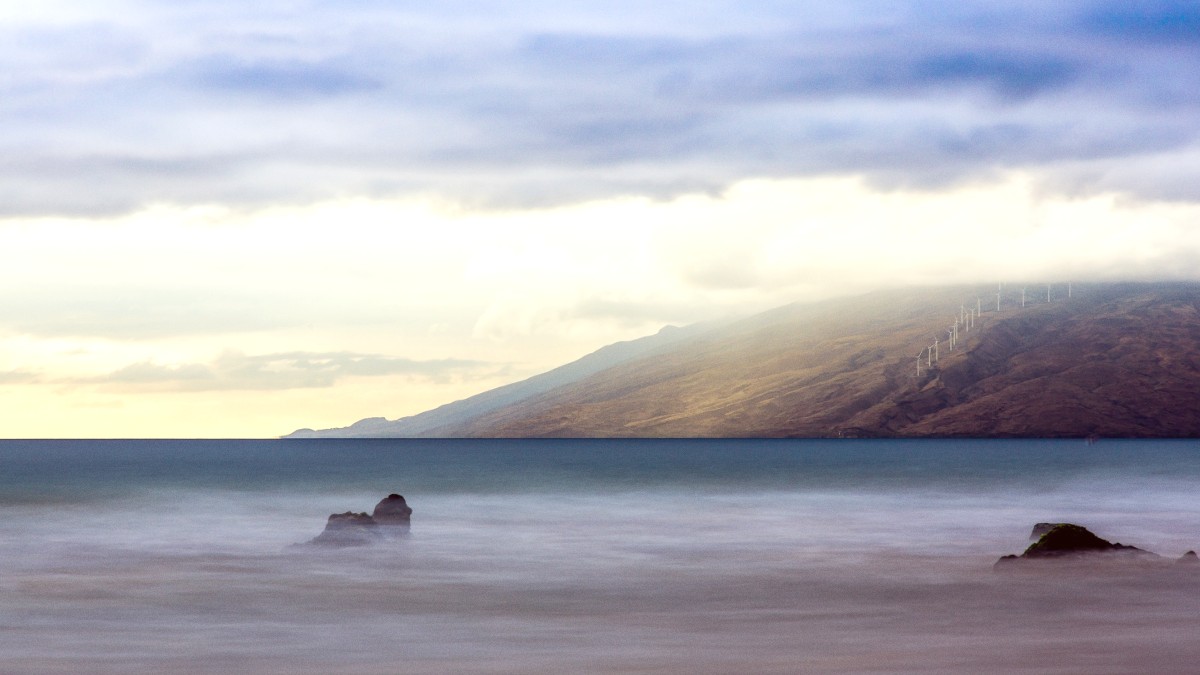
Hawaii, USA
Lanai presents a retreat for those who cherish privacy and seek an authentic connection with nature. Here, you find a slower pace, where days unfold without urgency. The island’s charm stems from its contrasts: opulent resorts feature world-class amenities just a short drive from a small, historic plantation town. This unique blend creates a compelling draw for travelers seeking both indulgence and discovery. It invites you to unwind, explore, and truly disconnect in a setting of unparalleled beauty.
Lanai is not a place for bustling nightlife or expansive shopping centers. The island's core charm is its tranquility, natural allure, and abundant outdoor activities.
Adjust your expectations for a profoundly peaceful escape, embracing the island's serene environment.
Lanai is the smallest publicly accessible inhabited island within the Hawaiian chain. It sits west of Maui, approximately nine miles (14.5 km) across the Auau Channel. Often described as pineapple-shaped, its land area spans about 140 square miles (364 sq km). This relatively small size lends itself to easier exploration compared to larger islands, though much of its interior and northern coast calls for specialized vehicles for access.
Lanaihale, the island's highest peak, reaches 3,370 feet (1,027 m) in the central highlands. This elevation shapes a distinct weather pattern. The windward (eastern) slopes and the central plateau, including Lanai City, receive more moisture, leading to cooler temperatures and lush pine forests. In contrast, the leeward (western and southern) coasts are significantly drier and warmer, characterized by arid landscapes and beautiful, sun-drenched beaches. This striking environmental shift from coast to mountain appears within a short drive.
Lanai's geological story links to its volcanic beginnings; it is one of the Hawaiian chain's oldest volcanoes, now dormant.
Millions of years of erosion have sculpted its dramatic cliffs and valleys.
The island's coastline offers a mix of pristine sandy beaches, rocky coves, and rugged shorelines shaped by Pacific waves.
Its isolation has safeguarded unique terrestrial and marine ecosystems, including Hulopoe Bay's protected waters.
Today's landscape reflects its ancient formation combined with recent land use, from pineapple cultivation to modern conservation efforts.
Lanai, often called "Pineapple Isle" or "Hawaii's Most Secluded Island," is the smallest publicly accessible inhabited island in the Hawaiian chain, located west of Maui. It covers approximately 140 square miles (364 sq km) and is largely owned by Oracle founder Larry Ellison, who acquired 98% of the island in 2012. The island is outstanding for its dramatic contrasts, from pristine beaches and luxurious resorts along the coast to rugged, unpaved interior roads that journey to volcanic landscapes and dense pine forests.
Lanai maintains a quiet, exclusive atmosphere, drawing travelers who seek privacy, natural beauty, and adventure away from the crowds of more populated Hawaiian islands. Its main town, Lanai City, sits at 1,700 feet (518 m) elevation in the island's cool, central highlands.
This distinct blend of natural splendor, limited development, and focused luxury creates a singular travel experience. Lanai offers a mix of high-end indulgence at its two Four Seasons resorts and a more grounded, local feel in Lanai City.
Outdoor enthusiasts find ample opportunities for adventure, from challenging 4x4 drives to remote historical sites and stunning natural formations like the Garden of the Gods. Its protected marine areas present world-class snorkeling and diving. The island’s dedication to preserving its natural and cultural heritage, coupled with its welcoming local community, positions Lanai as a destination for those who seek more than a typical beach vacation. It holds an opportunity for genuine discovery and quiet rejuvenation.
Lanai is a history spanning centuries, from its origins as sacred land to its transformation into the world's largest pineapple plantation, and now, a luxury retreat. Ancient Hawaiian legends describe the island as once inhabited by mischievous spirits until the warrior-chief Kaululaau banished them, making it safe for human settlement.
Early Hawaiians prospered on Lanai, establishing fishing villages along its coast, practicing dryland farming, and leaving behind petroglyphs and other archaeological evidence of their presence. Kaunolu, a preserved fishing village on the southern coast, was a favored retreat of King Kamehameha I, underscoring the island's past importance.
James Dole purchased nearly the entire island in 1922, turning it into "Pineapple Isle," a monoculture empire that lasted for decades.
The pineapple industry's decline in the late 20th century led to a focus on tourism as the island's main economic support.
In 2012, Larry Ellison acquired 98% of Lanai, launching a new era focused on sustainable tourism, wellness, and conservation.
The arrival of Westerners brought drastic changes. In the mid-19th century, Mormon settlers attempted to establish a colony on Lanai, but their efforts were short-lived. The island then saw ranching become a dominant industry.